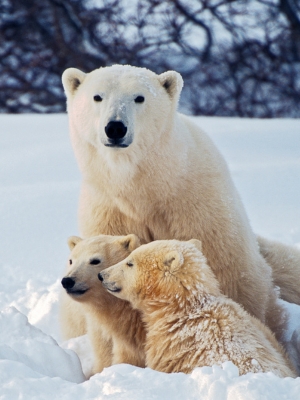With 531 monkey mouths to feed here at the sanctuary, food is a big deal for everyone. For our team, diet planning, ordering, budgeting, daily food preparation, distribution, and clean up take up a large part of the working day. For the monkeys, food is not just a form of sustenance; it also plays into social bonding and hierarchies. In addition, the importance of foraging as means to promote mental stimulation, learning, and bonding for all non-human primates cannot be overstated.
Many monkeys come to us suffering from the effects of poor nutrition. Some are underweight, some are overweight, some have emotional or psychological ties to food that can manifest (much like in humans) as stress eating or, conversely, loss of appetite at times of upset. Some monkeys have never eaten fresh fruit and vegetables before and, instead, lived on processed food fed to them by their previous owners. Several of our monkey residents have developed diabetes as a direct result of poor nutrition before they came to the sanctuary.
The individual needs of each monkey with regard to diet are further complicated by the fact that our residents live in social groups and may live with other monkeys who have different dietary needs to them or with monkeys who are aggressive or protective over food. With this in mind, our team has to ensure daily that monkeys who are underweight or who struggle to maintain weight are getting the correct nutrition while their companions, who might be overweight, or simply dominant when it comes to eating, do not end up filling up on extra high calorie food that is not intended for them.
All-in-all, there is a lot more to it than just handing out bananas!
When we began to rethink the monkeys’ diets a couple of years ago, I did a lot of research on the nutritional makeup of various produce; looking at calories, fat, carbs, fiber, and sugar content of each fruit or veggie. Using this data, I calculated the amount of produce by weight that each monkey should get based on a percentage of their body weight. The calculations factored in whether we wanted that specific monkey to lose, maintain, or gain more weight. We also varied the total amount of food depending on how many individuals were in each enclosure and whether there was high competition or aggression during feeding. We also had to work out how to manage food properly for enclosures that housed both underweight and overweight monkeys. In some cases, for these enclosures, this might mean increasing the amount of lower priority food (things that the monkeys care less about and don’t fight for) so that the lower ranking monkeys (usually the ones who are underweight) have access to more food without increasing the amount of high priority food (usually high sugar fruits – bananas being the most prized food item, of course). Following this preparation, we were able to establish a diet plan for each enclosure based on the individual needs of the monkeys in that enclosure and their social bonds and hierarchies. We also worked with our supplier to improve quality of food, which has made a marked difference in nutrition.
The work paid off and, over the last year or so, we have seen improvements in weight for those monkeys who were either under- or overweight, which, in turn, has improved quality of life for the monkeys.
Here at the sanctuary, our team is constantly striving to provide the absolute best possible care to our residents in all areas of their lives. This means ensuring that we are consistently challenging ourselves to improve upon our existing practices and put new ideas and learning into action. It is only thanks to the support of people like you that we are able to ensure that every monkey under our care gets the high standard of healthy nutrition that they do!
For the monkeys,
Dale
With 531 monkeys, our Primate Sanctuary goes through a lot of food. Each day, the monkeys consume 500 pounds of produce and our total annual food costs are at $140,000! You can help cover this important expense by donating to our Feed a Monkey campaign! For only $5, you can provide a monkey with an entire week of nutritious and delicious food.
The monkeys need your support. Feed a monkey today!

 Dear Reader,
Dear Reader,